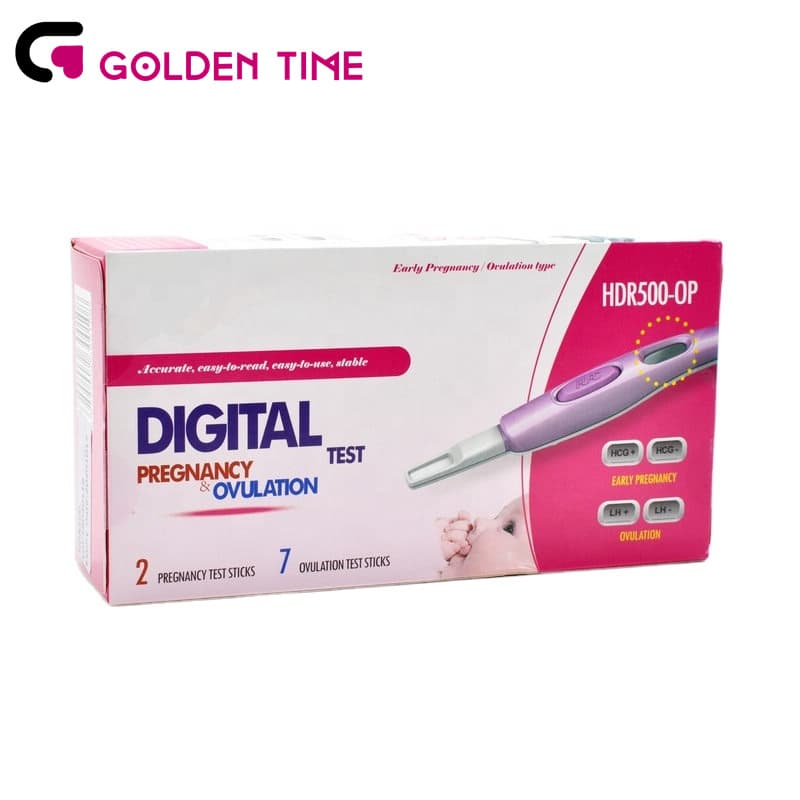Dec . 19, 2024 16:26 Back to list
wholesale best ovulation predictor kit manufacturer
Understanding the Wholesale Market for Best Ovulation Predictor Kit Manufacturers
In recent years, the fertility market has seen a surge in demand for ovulation predictor kits (OPKs). These kits are crucial for women trying to conceive, as they help pinpoint the optimal time for conception by detecting hormonal changes indicating ovulation. With this growing demand, the wholesale market for OPKs presents both opportunities and challenges for manufacturers looking to establish themselves as leaders in this niche industry.
What are Ovulation Predictor Kits?
Ovulation predictor kits are diagnostic devices that allow women to monitor their ovulation cycles. Typically, these kits work by detecting the surge of Luteinizing Hormone (LH) in urine, which occurs about 24 to 36 hours before ovulation. This time frame is essential for couples trying to conceive, as it indicates the most fertile days. OPKs can vary in format, including test strips, mid-stream tests, and digital monitors, each designed to cater to specific consumer preferences.
The Growing Market Demand
The global fertility management market is expanding, with factors such as increasing awareness about reproductive health, lifestyle choices, and the rising average age of first-time mothers contributing to this growth. Women are actively seeking ways to understand their bodies better, resulting in a notable increase in the purchase of ovulation kits. As a wholesale manufacturer, tapping into this trend can lead to substantial business opportunities.
Key Considerations for Manufacturers
1. Quality and Reliability The most critical factor in gaining market trust is the quality of the ovulation predictor kit. Manufacturers must invest in high-quality materials and innovative technology to ensure accuracy and reliability in their products. Investing in clinical studies to validate product effectiveness can also enhance credibility.
wholesale best ovulation predictor kit manufacturer

2. Compliance with Regulations Different countries have varying regulations governing medical devices. Manufacturers must ensure their OPKs comply with local and international standards, such as FDA approval in the United States or CE marking in Europe. Navigating these regulatory landscapes can be complex but is essential for market entry.
3. Product Diversity Offering a diverse range of products can help capture a wider market segment. Considerations for variations in packaging, sensitivity levels, and additional features like mobile apps can enhance user experience and motivate consumers to choose your brand.
4. Marketing and Distribution Channels Establishing efficient distribution channels is essential for wholesale manufacturers. Partnering with pharmacies, health retailers, and online platforms can increase product visibility and accessibility. Effective marketing strategies that communicate the benefits and ease of use of OPKs can also drive sales.
5. Building Brand Trust In a market where many options exist, brand trust plays a crucial role in consumer decisions. Engaging with customers through educational content, testimonials, and transparent communication can help build a loyal customer base.
The Role of Technology
Advancements in technology have also transformed the way ovulation prediction is approaching. Digital ovulation kits, for instance, offer greater convenience and accuracy. Some kits connect to smartphone applications to track cycles, provide reminders, and even suggest fertility window predictions. Incorporating such technologies into the product line can be a game-changer, appealing to a tech-savvy consumer base.
Conclusion
In summary, the wholesale market for ovulation predictor kits is ripe with potential for manufacturers willing to navigate its complexities. By focusing on quality, regulatory compliance, diverse product offerings, smart marketing strategies, and leveraging technology, manufacturers can position themselves for success in this competitive landscape. As the demand for fertility-related products continues to rise, those who can innovate and build trust will likely thrive in this burgeoning market. As women increasingly take control of their reproductive health, the role of OPKs in this journey will remain significant, making the wholesale manufacturing of these kits an important endeavor for the future.
-
Dengue NS1 Rapid Diagnostic Test Kit
NewsMar.07,2025
-
Dengue NS1 Rapid Diagnostic Test Kit
NewsMar.07,2025
-
Dengue NS1 Rapid Diagnostic Test Kit
NewsMar.07,2025
-
Transferrin Rapid Test Cassette Tumor Marker TF Card
NewsMar.07,2025
-
Malaria Pf Pan Rapid Diagnostic Test Kit
NewsMar.07,2025
-
malaria pf / pan ag rapid test
NewsMar.07,2025

